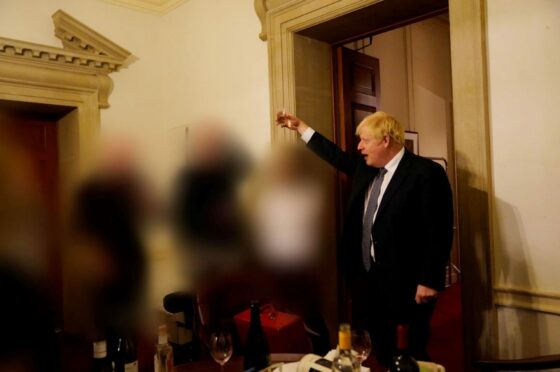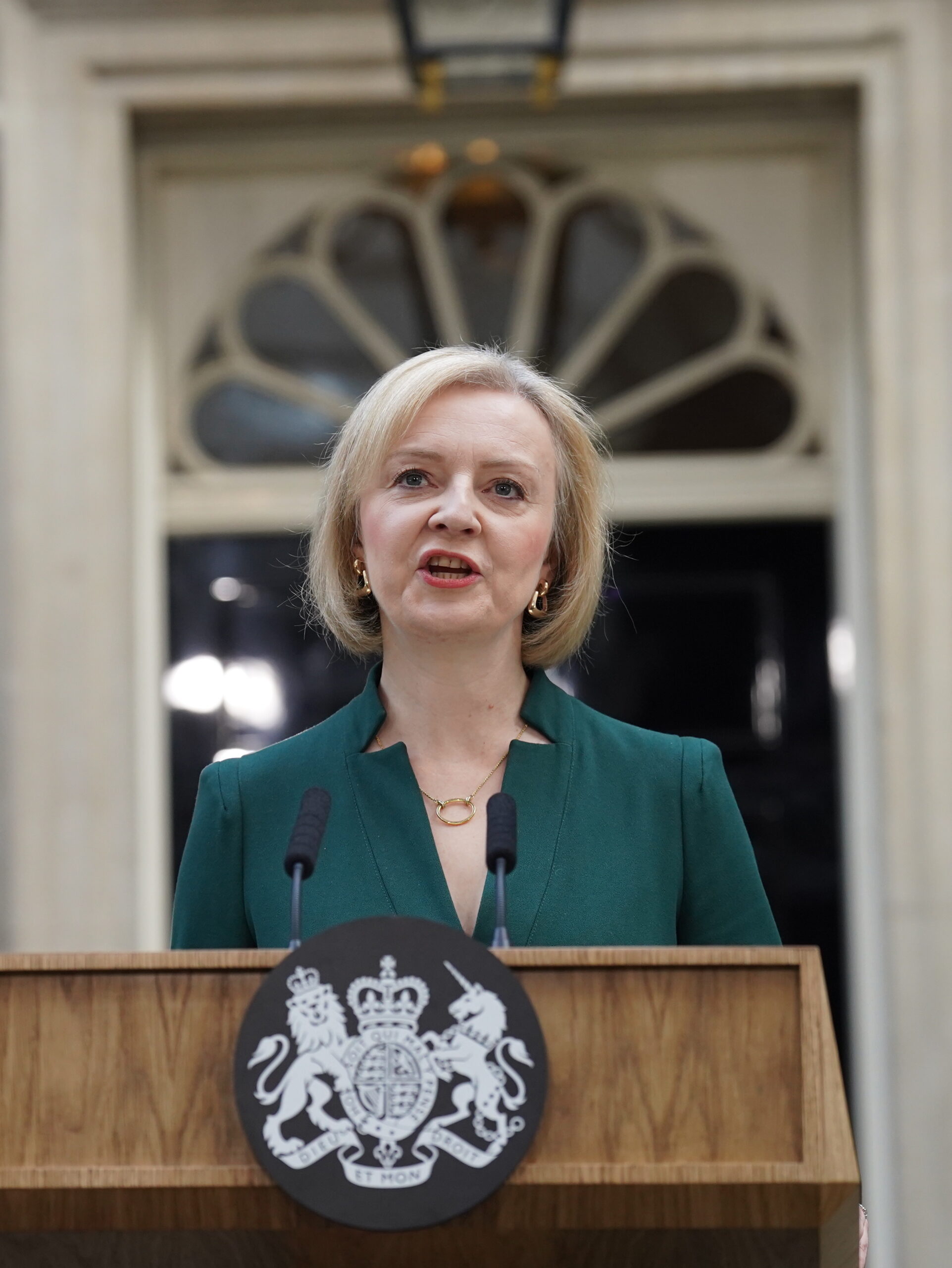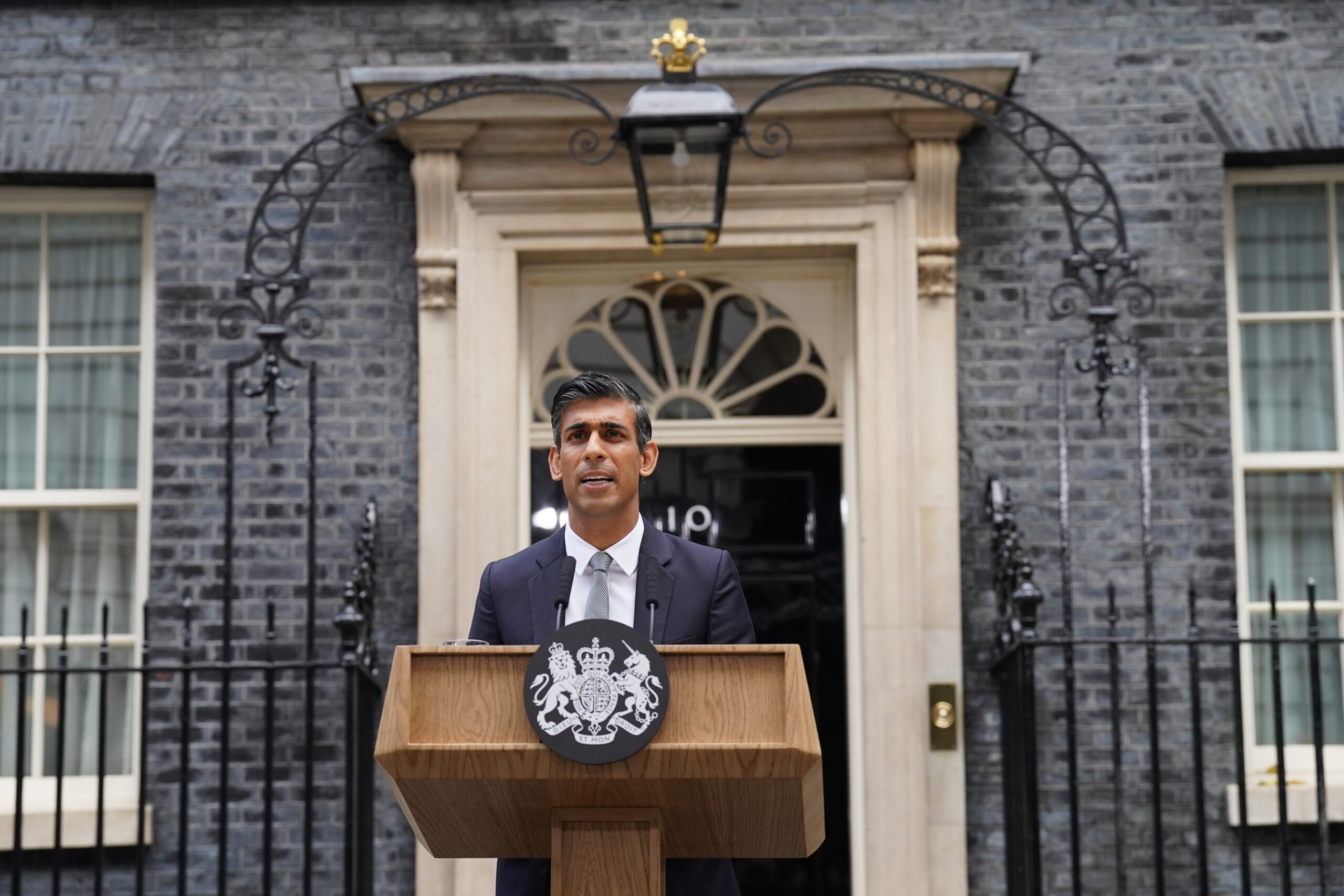
It was the year the Conservative Party, too long in office, too tolerant of its own psychodramas, had a nervous breakdown and almost took the UK with it.
It was the year of three prime ministers. The year the lonely reality of Brexit started to hit home. The year we were reminded just how dangerous the world remains. The year we all got poorer…and colder.
In due course we may look back on 2022 as an end point of the long 2010s: from the financial crisis of 2008, this cursed period staggered on with a decade of referendums that changed the face of Britain for good, if not necessarily for the better.
The tech age, a modern-day industrial revolution which has yet to run its course, has uprooted much of what was once taken for granted in the way we work, live and play: old securities have been lost, old models broken, while new ones have yet to be found.
A 21st Century plague kept us from each other for the best part of two years. We had been left unhappy with ourselves, our society, our leaders.
No wonder that as we emerged blinking into 2022 we seemed a bit off-kilter, less sure of the world around us. Did the old levers still work? Was the wiring still connected? Was this thing on? Poor Britain, and poor Britons: reeling as we were, we were about to be taught some harsh lessons about decisions and their consequences.
What will history make of the three-year reign of Boris Johnson? The wannabe World King made it to No 10 almost by failing upwards – a hopeless foreign secretary, a moral vacuum, the kind of man who would sell his granny for an inch of personal advancement. He “delivered” Brexit, then showed us he had no idea what to do next.
He treated the Cabinet as a personal court, packing it with loyalist toadies who were not up to the job. He boasted about how great the future was going to be, even as Britain sank into an economic quagmire.
As we emerged from the privations of Covid it was revealed that while imposing strict rules on how the rest of us should live, he and his flunkies had behaved as they pleased throughout: like princelings, exempt from the burdens of the little people. We had put a spoiled child in charge of the country, and should not have been surprised at how that turned out.
Over the summer and into autumn, the wretched Johnson was finally chased out of No 10 by his own aghast party although, as Tory polling plumbed historic depths, they seemed more troubled by the prospect of losing their seats than by their leader’s gross deficiencies.
As Johnson sullenly headed off to make millions on the speechifying circuit as a “world statesman”, little did we know that famous black Downing Street entrance was now a revolving door.
In years to come there will be books written and courses taught on how the country of Churchill, Attlee, Thatcher, Blair and Brown ended up with Liz Truss as its prime minister.
It is hard enough to figure it now, in the immediate aftermath, when the period’s ruins still litter the landscape and the sheer oddness of it all is fresh in the memory.
Even as we saw it coming, during that leadership contest that stretched from July until September but seemed to last so much longer, it was hard to accept that Truss was going to emerge as the winner.
Across the televised debates it was all too clear that she lacked most of the qualities required in a competent PM: judgment, wisdom, the ability to find compromise, an understanding of the broad British public, at least a degree of charisma, the ability to speak well in public, comfort in her own skin.
Instead she was robotic, repetitive, malfunctioning – at times like she’d just stepped off a spaceship and taken on human form.
It was evident to everyone but that strange, self-selecting subset of people who make up the Conservative Party membership that Rishi Sunak, whatever his flaws, was the better candidate by miles.
And yet, for reasons still somewhat unclear – perhaps his role in bringing down Johnson (for which he deserved a medal), perhaps his relative moderation, perhaps, for some, his race – they wouldn’t have him. They wanted Truss, the Thatcher knock-off, with her tribute photo-ops, basilisk stare and pussy bows.
In office, Truss didn’t so much grow but shrink into the job of prime minister. She all but vanished from public view. She appointed Kwasi Kwarteng, an Old Etonian with the classic mix of swagger and diffidence, as Chancellor – if anything, he came across as even odder than she was.
The pair decided to go for broke by pursuing the hard ideological agenda to which both had been aligned as young right-wingers, now given the moniker Trussonomics.
Boris Johnson’s ‘corrupt’ honours list of party donors fuels calls for Lords’ reform
Despite the already parlous state of the UK economy and soaring inflation, their mini-budget promised major tax cuts funded by high levels of borrowing, and without consequent cuts to public spending. The markets responded by dumping the pound, forcing an intervention from the Bank of England, while everyone from the IMF to Joe Biden to Michael Gove wondered out loud if Britain had taken leave of its senses.
It hadn’t, or at least not fully. As economists wailed, the pound plummeted and it became clear that mortgage rates were going to soar, the scale of the error could no longer be avoided. It wasn’t just that the mini-budget had been a mistake – the selection of Truss as prime minister had been wrongheaded from the start.
It became equally obvious that there would have to be change at the top once again, and urgently.
By this point the British people had lost any faith they’d retained in the Conservatives as a competent party that gave a monkey’s about them. Even the middle-classes were feeling the pinch due to rising food and heating costs – all but the wealthiest were being forced to slash household budgets and do away with anything that could be classed as a luxury.
Labour under Keir Starmer – until then hardly a thrilling prospect along the lines of New Labour and Tony Blair in 1997 – began to appear more attractive, a safe haven of grown-ups with their hearts and heads in the right place. The Opposition was now consistently 20 points ahead in the polls, which all but guaranteed a change of government at the next general election.
After 44 tumultuous, ignominious days in office, Truss announced her resignation, the shortest-serving PM in British history. Her misguided reign may have been brief but she had still caused tremendous damage to the country.
The recession would be that much harder and more expensive to climb out of, and the UK’s global reputation, already weakened by Brexit and the consistent unreliability of the preceding Johnson regime, had tanked further.
Now Tory MPs did what they should have done in the first place – they took control of the leadership process from the flaky membership, and quickly installed Sunak in No 10.
Britain’s first Asian PM is a bright centrist who did well as Chancellor during the pandemic, and who has brought a degree of calm, common sense and intellectual rigour back to government.
That he is spectacularly wealthy through a former career in hedge funds and marriage to the daughter of an Indian billionaire bothers some more than others. Regardless, he has consigned Trussonomics to the wastebasket of history and is quietly going about the painful business of digging the British economy out of the deep hole it is currently in.
It is probably all too late for both Sunak and his party but that is their concern. The past 12 years of Conservative rule – how long ago it seems since a pink-cheeked David Cameron first walked through the door of Downing Street – have been endlessly turbulent and bruising. To be British over the span has felt like being stuck inside a washing machine on a permanent spin cycle.
Our economy has staggered from one crisis to the next. We were pitted against one another over our membership of the EU, and in the end took a bad, self-harming decision that we must live with, and experience the consequences of, for decades to come.
The very fabric of the UK may come apart – not just here in Scotland, where recent polls show support for independence growing but in Northern Ireland, where Sinn Fein is now the largest party and where reunification with the south is becoming an ever more popular option.
This winter is proving a hard and depressing experience. We must think twice about putting the heating on, despite the chill, and Christmas for most will be a much-reduced affair. We have grown poorer thanks to inflation and low growth and that unhappy situation, according to economists, is unlikely to change for a few years yet.
Even then, the long-term effects of economic separation from the European continent will continue to drag us down. That old phrase “the sick man of Europe” is once again being thrown at us.
It is worth bearing in mind, however, that not all of our troubles are self-inflicted. The terrible war in Ukraine will end at some point and Vladimir Putin will pass into historical disgrace – and that awful conflict puts our own difficulties into perspective.
The technological revolution may be causing chaos across the world, but it will in time almost certainly lead to new, stable, affordable and improved ways of living, much as the equally disruptive industrial revolution had by the early 19th Century. The future of our planet is of course a different challenge altogether but the race for renewable energy and technology will ultimately produce extraordinary results and benefits.
The state of the United Kingdom by that stage – if there even is a United Kingdom – is unknowable. But while 2022 has been a difficult year, and has followed a long run of difficult years, there is a lot of ruin in a country.
You don’t have to be an empty booster like Boris Johnson to acknowledge that Britain is old, has endured much, and has come through worse. There is always cause for hope, and even when things are at their darkest the sun still rises.
Chris Deerin is a political commentator and director of the Reform Scotland thinktank

Enjoy the convenience of having The Sunday Post delivered as a digital ePaper straight to your smartphone, tablet or computer.
Subscribe for only £5.49 a month and enjoy all the benefits of the printed paper as a digital replica.
Subscribe
 © PA
© PA